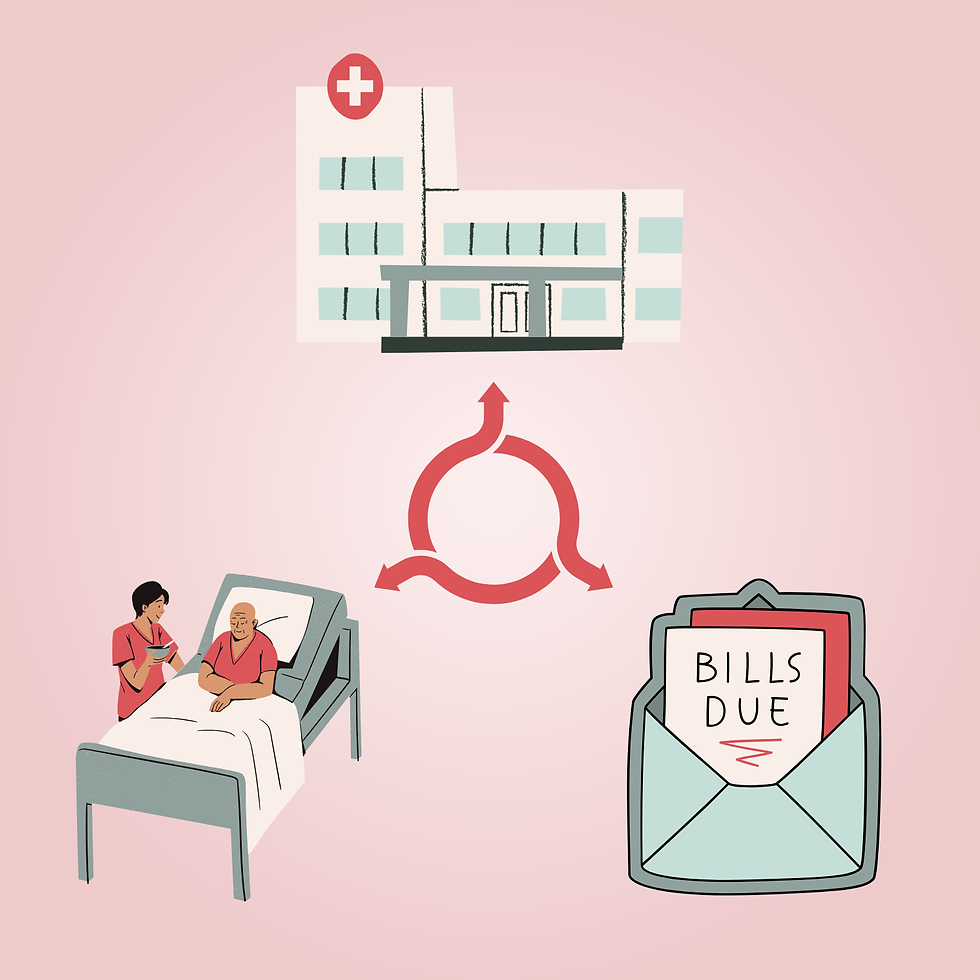An Ethical Duty to Remember
- Simone Nabors
- Nov 1, 2022
- 3 min read
Most Americans who were alive and conscious during the 80s and 90s have some remembrance of the beginning of the AIDS crisis. For some, it was a distant truth that barely tapped into reality, or perhaps a karmic consequence for deviant “others.” For many members of the LGBTQ+ community, it was a period of terror and immense loss that has never been fully healed. Today, for every story we do hear, there are thousands that may never see the light of day.
A commonly held sentiment is that we need to remember the AIDS crisis. This is absolutely true, but we do not often talk about why we need to remember it. If we fail to remember our past, we are doomed to repeat it. If we fail to learn from our present, we are doomed to become trapped in it. The AIDS epidemic is far from over. In 2021, 40 years after it was first reported, over 500,000 people died from AIDS-related illnesses globally. This anniversary of the ongoing crisis was met with the COVID-19 pandemic, which, despite growing public apathy, is also far from over. Looking back to the start of the AIDS epidemic, it is not only important that we accurately remember what happened but also that we learn from it. Today we are at a pivotal point, both in remembering the past and in learning from the present.

In terms of science and medicine, there is a lot that we have learned throughout the AIDS epidemic that continues to ring true. The value of community-based health programs cannot be underscored. Scientific advancements in treatments and prevention measures mean little to nothing if they aren’t accessible to the most vulnerable–and often most marginalized–groups. Unfortunately, in the first years of both the AIDS epidemic and the COVID-19 pandemic, denial and the spread of misinformation delayed advancements and led to preventable deaths. It is clear that accurate and timely communication both within the healthcare field and to the public is paramount.
Among those directly involved with science and medicine, few would deny the importance of learning these lessons, but for those on the outside, they can often feel intimidating. Historically, this has silenced important voices and further alienated already marginalized groups, but we have an opportunity to change that. When healthcare feels far-removed, and the sphere of public health feels understandably daunting, we have to ask ourselves, what can we start on a smaller scale that can still have a big impact?
One thing that has been abundantly clear throughout the AIDS epidemic is the danger of stigmatization. Our initial response to HIV/AIDS was largely nonexistent because those in power saw it as a consequence for deviant behaviors, such as being gay or using intravenous drugs. This hateful rhetoric quickly incited public fear, not only of the disease, but of the people who contracted it. As is the case with many public health crises, the stigma can often spread faster than the disease itself. In a world where words carry as much weight as they do, the language we attach to diseases is incredibly important. That starts with small, one-on-one conversations, but needs to spread into the media and public discourse to truly make an impact.
The language we use in these conversations matters, but so do the conversations themselves. We have a responsibility to remember what is happening and to share this knowledge in any way we can. As we have seen in the decades since the start of the AIDS epidemic, history can easily be forgotten or rewritten. We cannot let this happen.
As we continue to live through the AIDS epidemic, the COVID-19 pandemic, and the future public health crises that we will inevitably face, one thing is clear. We have an ethical duty to remember for those who cannot.
Edited by: Laila Khan-Farooqi
Graphic Designed by: Catie Fristoe



Comments